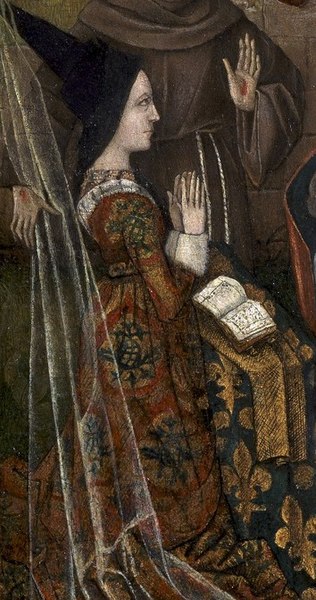The War of the Public Weal was a conflict between the king of France and an alliance of feudal nobles, organized in 1465 in defiance of the centralized authority of King Louis XI of France. It was masterminded by Charles the Bold, Count of Charolais, son of the Duke of Burgundy, with the king's brother Charles, Duke of Berry, as a figurehead. The rebels succeeded in attaining concessions from the crown after several months of fighting, though conflict would break out again between the league and the crown in the Mad War of 1485 in a decisive victory for the crown.
Siege of Paris from the Mémoires de Commynes, musée Dobrée, 16th century
Louis XI, called "Louis the Prudent", was King of France from 1461 to 1483. He succeeded his father, Charles VII. Louis entered into open rebellion against his father in a short-lived revolt known as the Praguerie in 1440. The king forgave his rebellious vassals, including Louis, to whom he entrusted the management of the Dauphiné, then a province in southeastern France. Louis's ceaseless intrigues, however, led his father to banish him from court. From the Dauphiné, Louis led his own political establishment and married Charlotte of Savoy, daughter of Louis, Duke of Savoy, against the will of his father. Charles VII sent an army to compel his son to his will, but Louis fled to Burgundy, where he was hosted by Philip the Good, the Duke of Burgundy, Charles' greatest enemy.
Louis XI wearing his Collar of the Order of Saint Michael, c. 1469
In this painting by Jean Fouquet, Louis's father Charles VII is depicted as one of the three magi, and it is assumed that Louis, then dauphin, is one of the other two.
Margaret of Scotland
Charlotte of Savoy





